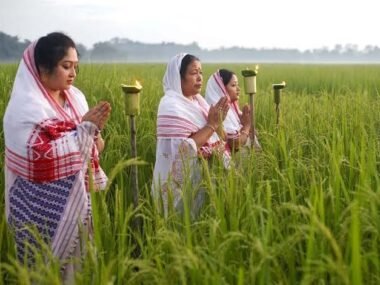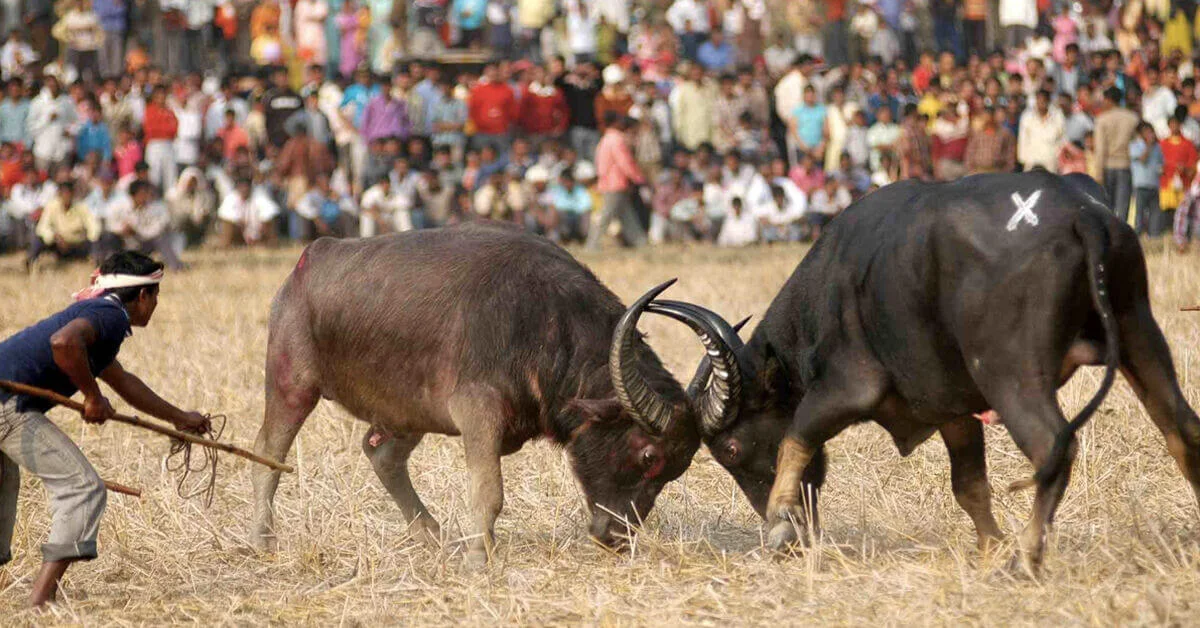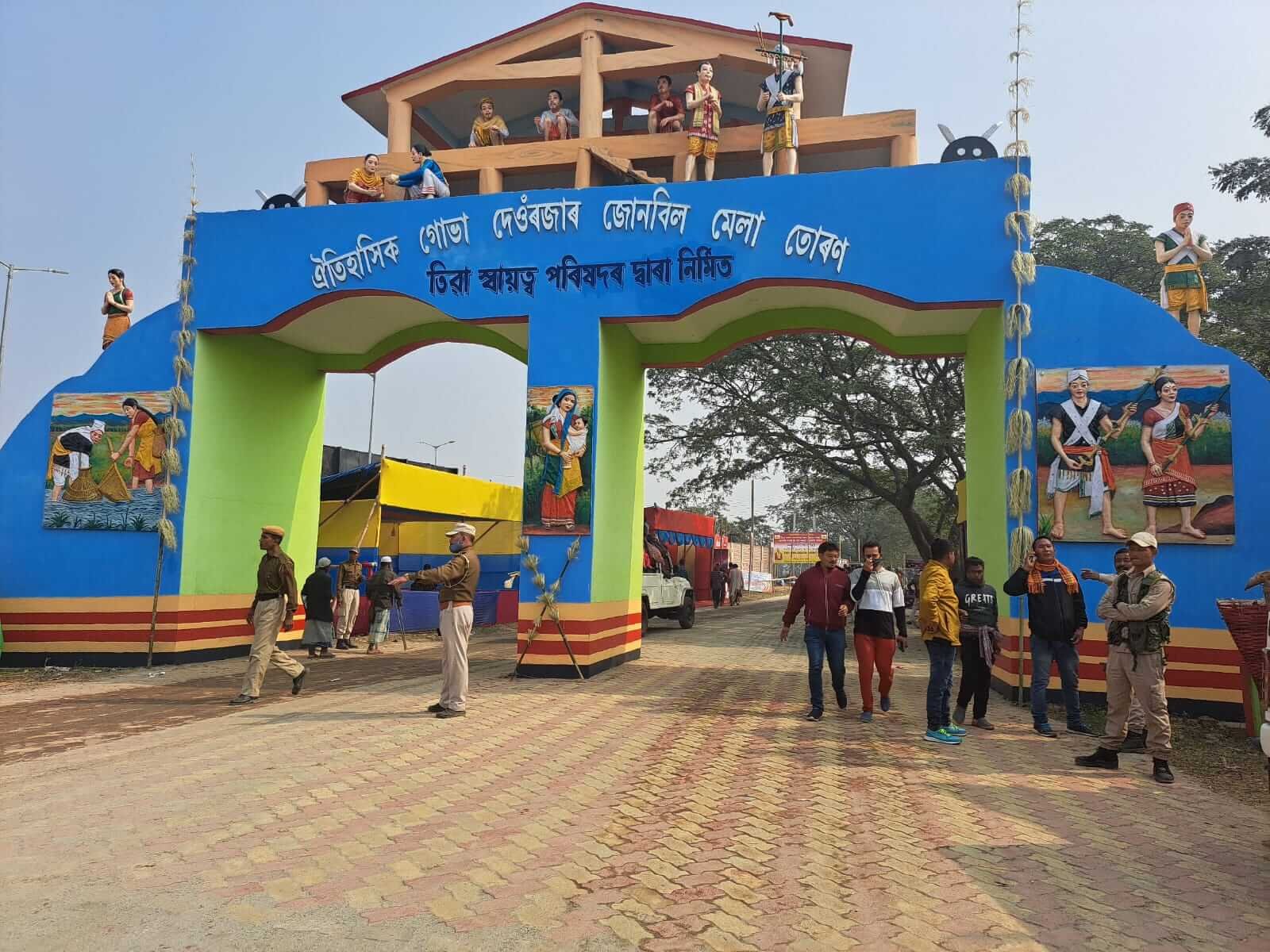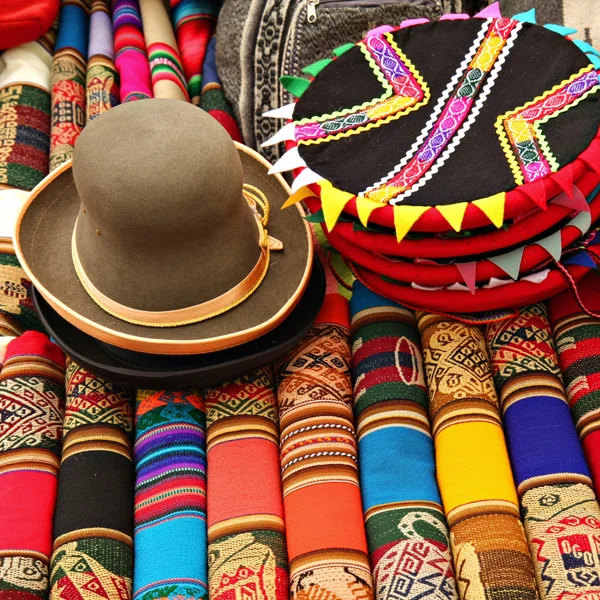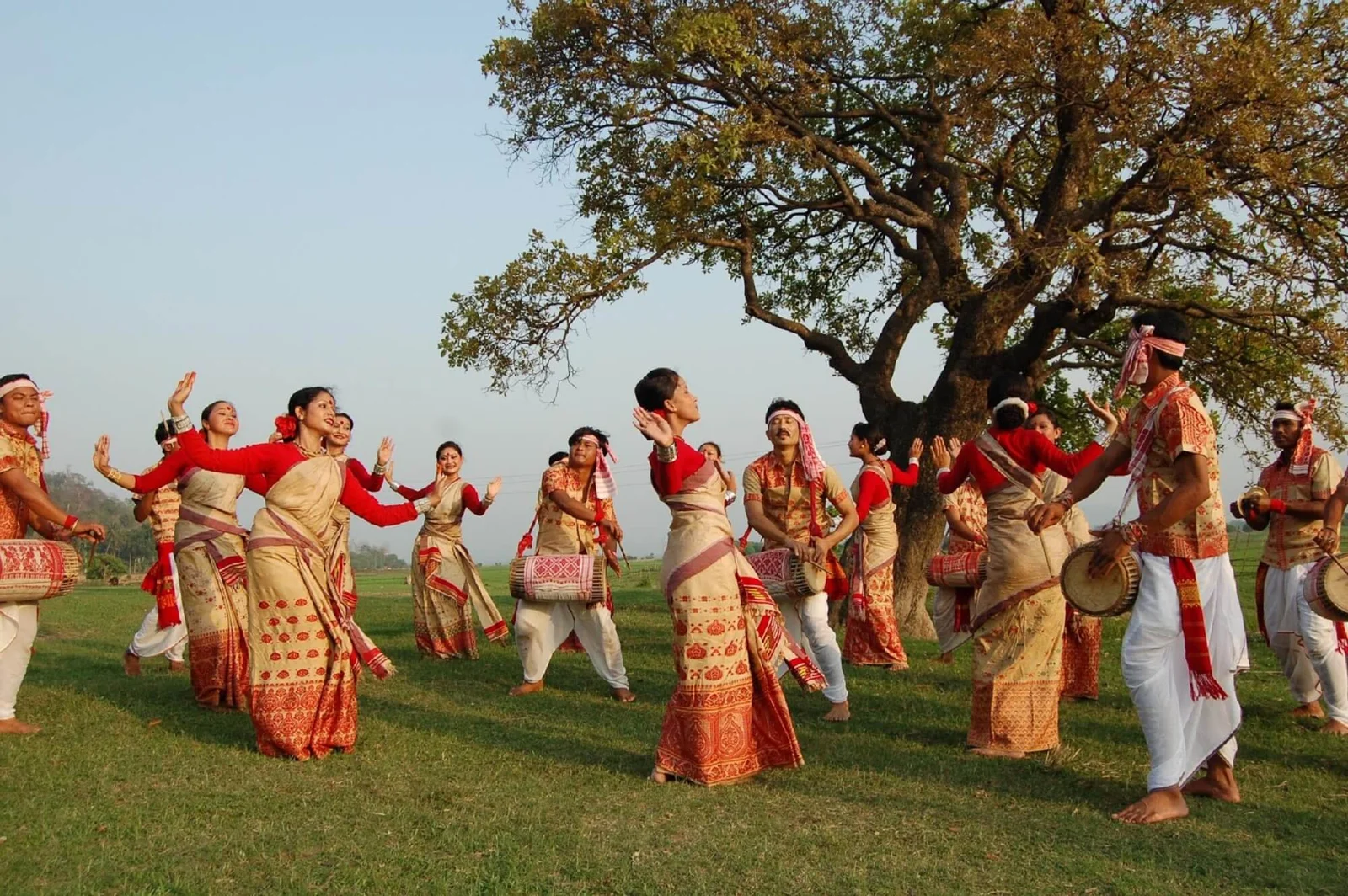Introduction
Bishnu Prasad Rabha (1909–1969) was more than just an artist; he was a force of nature. Born in Dacca (now in Bangladesh), Rabha’s life journey unfolded against the backdrop of India’s struggle for independence. His contributions spanned music, dance, painting, literature, and political activism. Here’s a glimpse into the remarkable life of this visionary:
Early Life and Education:
- Birth and Family:
- Bishnu Prasad Rabha was born in 1909 in Dacca (now in Bangladesh).
- Raised by a Rabha family, he adopted the ‘Rabha’ surname, reflecting his cultural identity.
- Educational Journey:
- Rabha attended Tezpur Government High School, where his artistic inclinations began to emerge.
- Later, he pursued higher education in Calcutta (now Kolkata), a vibrant hub of cultural exchange.
- Political Awakening:
- Influenced by left-wing ideologies, Rabha joined the Revolutionary Communist Party of India (RCPI) during World War II.
- His education and political engagement shaped his worldview and artistic expression.
Bishnu Prasad Rabha’s early years laid the foundation for his multifaceted contributions to Assamese culture and society.
Artistic Prowess:
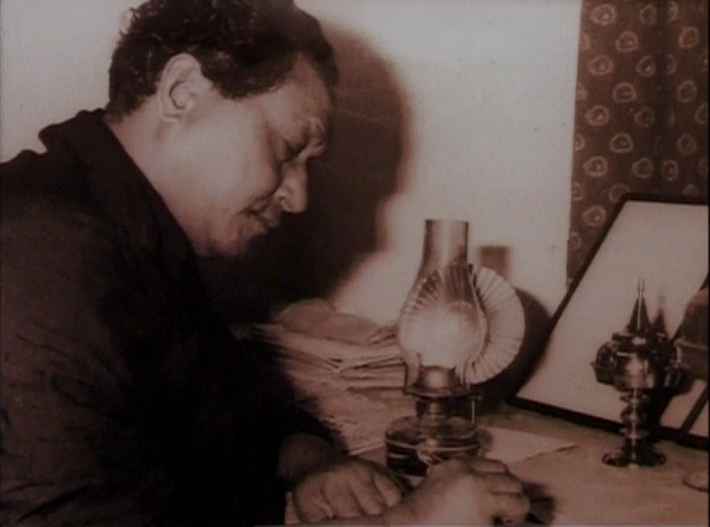
- Music and Dance:
- Rabha’s compositions were a harmonious blend of classical and folk traditions.
- His soulful renditions celebrated Assam’s cultural diversity and resonated with the people.
- As a dancer, he mesmerized audiences with graceful movements, infusing his performances with passion.
- Painting and Literature:
- Rabha’s brush strokes on canvas vividly portrayed Assam’s landscapes, folklore, and everyday life.
- His literary works, including “Bane’ Ke’bang,” delved into indigenous Assamese communities, emphasizing social issues.
- Through his art and words, he bridged the gap between tradition and modernity.
Bishnu Prasad Rabha’s artistic genius continues to inspire generations, leaving an indelible mark on Assamese culture.
Political Activism:
Freedom Struggle
Rabha was an active participant in India’s struggle for independence. Inspired by the ideals of Mahatma Gandhi and other freedom fighters, he joined the movement to liberate India from British colonial rule. His involvement included organizing protests, spreading nationalist sentiments through his art, and even enduring imprisonment.
Social Reform
Rabha’s activism extended beyond the fight for independence; he was committed to social reform. He worked tirelessly to address issues such as poverty, caste discrimination, and the exploitation of peasants and workers. His vision was to create a just and equitable society, where everyone had equal opportunities regardless of their social background.
Cultural Nationalism
Rabha believed in the power of culture as a tool for political change. He championed cultural nationalism, promoting the Assamese language, traditions, and art as a means to foster a strong regional identity. Through his writings, music, and public speeches, he encouraged the people of Assam to take pride in their heritage and use it as a foundation for political and social activism.
Peasant Movement
One of Rabha’s significant contributions was his involvement in the peasant movement. He advocated for the rights of farmers and landless laborers, who were often oppressed by landlords and colonial policies. He mobilized the peasantry, raising awareness about their rights and the need for agrarian reform.
Post-Independence Politics
After India gained independence, Rabha continued his political journey, focusing on the development of Assam. He was associated with various political organizations and movements that sought to address the regional issues of economic development, linguistic rights, and ethnic harmony. His efforts were aimed at ensuring that the benefits of independence reached the grassroots level.
Legacy
Bishnu Prasad Rabha’s political activism has left a lasting legacy in Assam. He is remembered not only as a cultural icon but also as a tireless advocate for justice and equality. His life and work continue to inspire new generations of activists who seek to address contemporary social and political challenges.
Legacy and Enduring Influence
1. Early Life and Background:
- Bishnu Prasad Rabha was born on January 31, 1909, in Dacca (now in Bangladesh), British India.
- Raised by a Rabha family, he adopted the ‘Rabha’ surname despite being born into a Bodo family.
- He attended Tezpur Government High School and later pursued higher education in Calcutta.
2. Multifaceted Contributions:
- Music and Dance: Rabha was an accomplished musician and dancer. He drew inspiration from classical and folk traditions, enriching Assamese culture.
- Painting and Literature: His artistic talents extended to painting and writing. His works reflected indigenous Assamese life and culture.
- Political Activism: Rabha actively participated in India’s struggle for independence. He aligned with left-wing ideas and eventually joined the Revolutionary Communist Party of India (RCPI).
3. Kalaguru and Sainik Silpi:
- Kalaguru: The Assamese people affectionately called him “Kalaguru,” which translates to “the master of the arts.”
- Sainik Silpi: For his involvement in the armed struggle alongside the RCPI, Marxists referred to him as “Sainik Silpi” (the artist-soldier).
4. Vision of Freedom:
- Rabha’s concept of freedom went beyond mere independence from British rule. He envisioned freedom from capitalism, poverty, and social evils.
- In his words, “I am fighting for a revolution from the realm of necessity to the realm of freedom.”
5. Literary Works:
- Bane’ Ke’bang: A significant work portraying the lives of various indigenous Assamese communities.
- Other notable works include “Mising Koneng,” “Sonpahi,” “Axomiya Kristir Hamuh Abhakh,” and “Atit Axom.”
6. Enduring Influence:
- Bishnu Prasad Rabha’s legacy endures through his artistic creations, political activism, and commitment to social justice.
- His impact extends beyond Assam, inspiring generations to appreciate culture, fight for freedom, and uplift marginalized sections of society.
Conclusion: A Timeless Inspiration
Bishnu Prasad Rabha’s impact transcends time and borders. His artistic genius, political activism, and unwavering commitment to justice continue to resonate with generations. As “Kalaguru,” he remains etched in Assam’s cultural tapestry, urging us to embrace freedom, creativity, and compassion. Let Rabha’s legacy inspire us to build a better world—one where art, equality, and humanity thrive.
FAQ’s
Q: Who was Bishnu Prasad Rabha?
A: Bishnu Prasad Rabha was a multifaceted personality from Assam, India, known for his contributions as an artist, writer, musician, and political activist. He played a significant role in India’s freedom struggle and worked towards social reform and cultural preservation in Assam.
Q: What were Bishnu Prasad Rabha’s contributions to literature?
A: Bishnu Prasad Rabha made significant contributions to Assamese literature through his poetry, plays, and essays. His literary works often reflected themes of social justice, patriotism, and the cultural heritage of Assam.
Q: How did Bishnu Prasad Rabha contribute to the freedom struggle of India?
A: Rabha was an active participant in India’s independence movement. He organized protests, spread nationalist messages through his art, and endured imprisonment for his involvement. He was inspired by leaders like Mahatma Gandhi and worked towards mobilizing the masses against British colonial rule.
Q: How is Bishnu Prasad Rabha remembered today?
A: Bishnu Prasad Rabha is remembered as a cultural icon and a tireless advocate for social justice. His legacy is celebrated annually on Bishnu Rabha Divas, and his life and work continue to inspire activists and artists in Assam and beyond.



